Multi-Stakeholder Perspectives on Understanding and Supporting Research Habits
How do various stakeholders in higher education believe that research habits can be best developed and supported? And how important is the role of the library in developing these skills?
Earlier this month, I had the opportunity to share findings on these perspectives from Ithaka S+R surveys of students, faculty members, and library directors.
In this webinar hosted by NFAIS, I was joined by Lisa Hinchliffe, Professor/Coordinator for Information Literacy Services and Instruction in the University Library at the University of Illinois at Urbana-Champaign, and Kate Lawrence, Vice President User Research, EBSCO Information Services, who both shared informative research and perspectives on trends on information literacy within academia. For those who are interested in viewing the entire set of slides from the presentation, please visit the event page. Below are some highlights from my talk.
- Students are interested in developing their research skills and gaining knowledge
Ithaka S+R has been running surveys of undergraduate and graduate/professional students on individual college campuses, in partnership with the academic libraries on these campuses, since 2014.
In analyzing the aggregate results of the student surveys fielded in the 2015-16 academic year[1], we have found that students are very interested in having advanced academic knowledge and improving their ability to find sources of information; they rated these goals as more important than or nearly as important as getting a job upon graduation, choosing a career or post-graduation plan, building their resume, and developing a professional network.
Figure 1: How important or unimportant is it to you to achieve each of the following goals as a result of your experience at this college or university? Average importance of each goal on a 1-7 scale where 1 = very unimportant and 7 = very important.
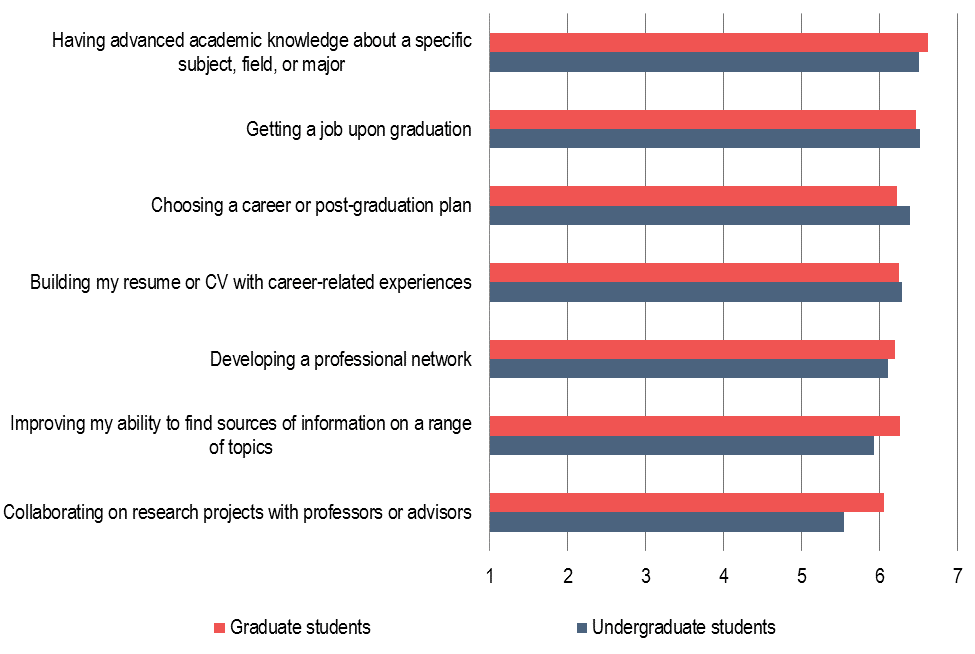
- A majority of faculty members now believe that their students have poor research skills and that the library can and should play a role in developing these skills
In the most recent cycle of the Ithaka S+R US Faculty Survey, it was clear that faculty members were becoming increasingly interested in having their students’ research skills developed.
First, we observed a substantial increase in the share of faculty members who believe that their undergraduate students have poor research skills. This shift was seen across disciplines, with humanists reporting the highest levels of agreement.
Figure 2: Percent of respondents who strongly agreed that their undergraduate students have poor skills related to locating and evaluating scholarly information.
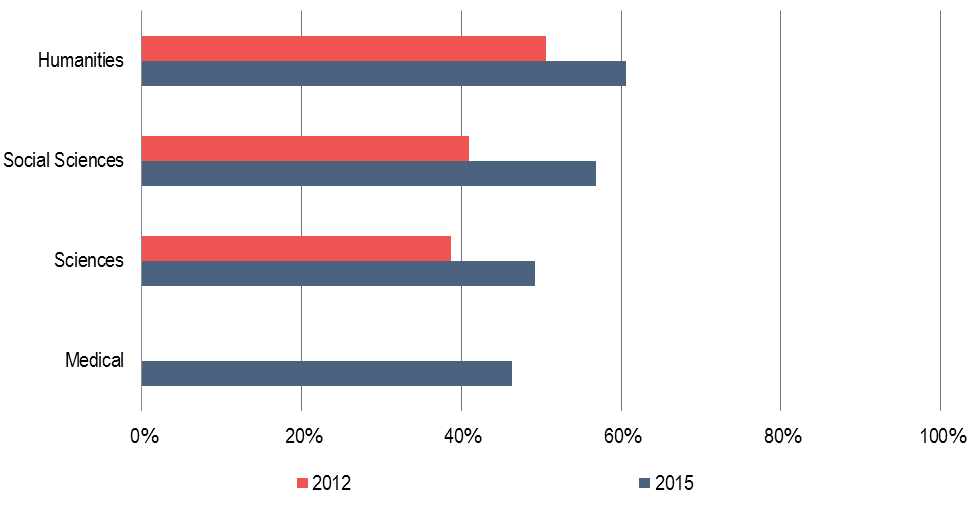
Furthermore, we observed a substantial increase in the perceived importance of the role of the library in helping undergraduate students develop research, critical analysis, and information literacy skills. The function of the library in providing this support for undergraduate students now occupies the spot for the second most highly important role of the library according to faculty respondents.
Figure 3: How important is it to you that your college or university library provides each of the functions below or serves in the capacity listed below? Percent of respondents who identified each function as highly important.
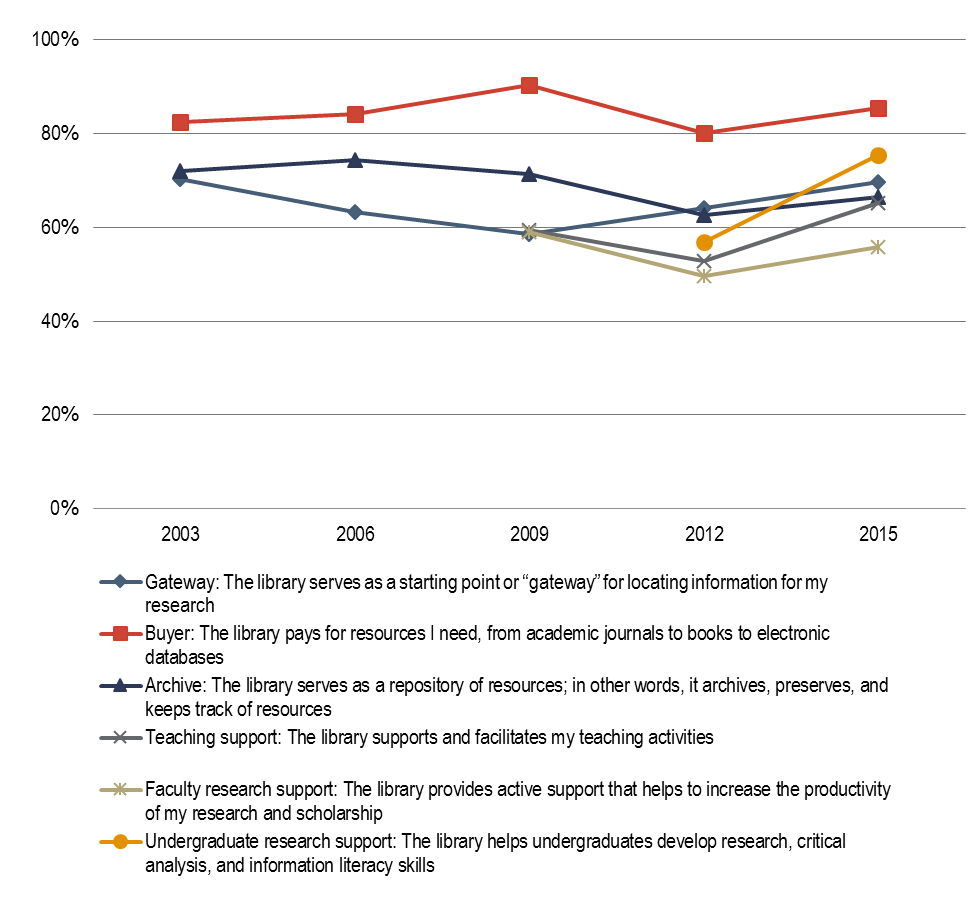
- Library deans and directors strongly believe that the library has a responsibility for supporting the development of students’ research skills
In our surveys of library deans and directors, we have seen a sustained interest across survey cycles in the library’s role in supporting students’ needs. In the 2010 and 2013 survey cycles, we observed high marks for the role of the library in supporting students’ research skills – and we have every reason to expect that this role will continue to be highly rated in our 2016 survey findings, which will be released later this spring.
Figure 4: How important to you is it that your college or university library provides each of the functions below or serves in the capacity listed below? Percent of respondents who identified each function as highly important.
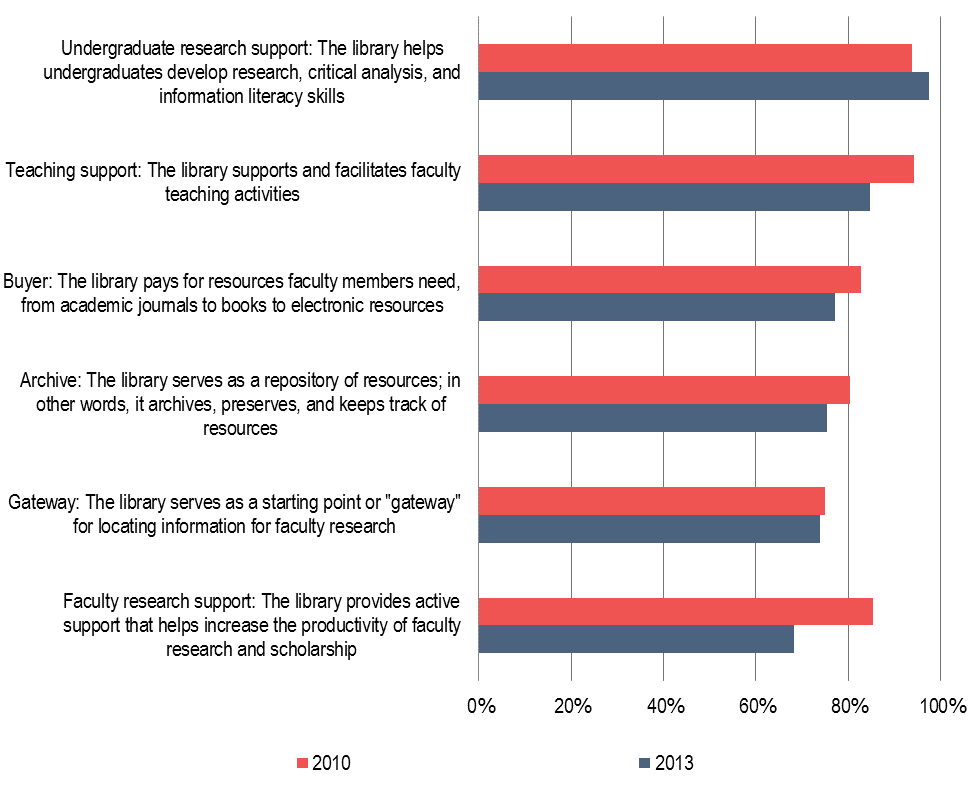
When library deans and directors were asked about who has responsibility for developing these skills, about three quarters of respondents indicated that this was the responsibility of the library. However, faculty members did not indicate the same level of agreement and, in fact, more strongly agreed that this was their own responsibility.
Figure 5: Please use the 10 to 1 scales below to indicate how well each statement below describes your point of view. Percent of respondents who strongly agreed with each statement.
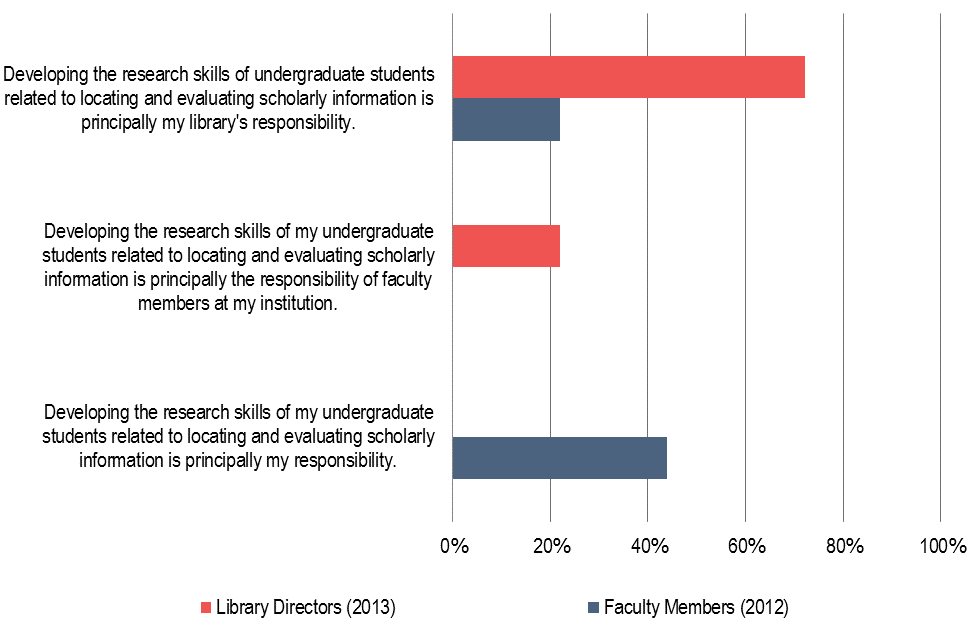
The results from these surveys demonstrate the importance of tracking these perceptions and needs across stakeholder groups, and give us a starting point for thinking about the potential partnerships between these groups in best supporting the development of research skills. Do these findings resonate with your experience? Please add your comments below!
[1] Six institutions fielded one or more student surveys in the 2015-16 academic year, including three R1 Doctoral Universities, two R2 Doctoral Universities, and one M2 Master’s University.